Publié le
Dernière mise à jour de cette page le

On December 10th, the UN celebrated International Human Rights Day, highlighting “the rights of all people — women, youth, minorities, persons with disabilities, indigenous people, the poor and marginalized — to make their voices heard in public life and be included in political decision-making”.
The rights to freedom of expression, peaceful assembly and association, and to take part in government (articles 19, 20 and 21 of the UDHR) are vital to democratic change, and have been impacted in new ways by the internet and online communication.
In partnership with members and networks, APC’s Internet Rights project is working to protect and promote these rights online, engaging States and relevant non-State actors through a variety of UN processes including participating in the Universal Periodic Review (UPR).
In May 2012, APC supported participation in the 13th session of the UPR by members and networks from Ecuador, India, Brazil, South Africa and the Philippines, following stakeholder submissions made in late 2011. Engaging national government and local stakeholders to promote internet rights these submissions make strong recommendations on freedom of expression and association, the right to information, privacy, and participation in public life. Many of these submissions also raise discussion about the internet in the context of women’s rights and the rights of marginalised groups.
Working in Ecuador, Valeria Betancourt from APC and Cesar Herrera from CIESPAL have been invited to join the national UPR Working Group, and to propose a set of indicators to monitor internet-related human rights issues. In India, DEF has continued its advocacy on Right to Information legislation, and is working to build regional support and develop strong written statements demanding due process for content removal and allegations of defamation. APC and its members have also been active in South Africa, including discussion with the South African Human Rights Commission (SAHRC) on how to respond to new cases of abusive speech online. In Brazil, activists were able to highlight the Brazilian government’s commitment to implement the recommendation of Estonia that Brasil “consider freedom of expression concerns with drafting cybercrime legislation”.
In September and October 2012, APC continued its global advocacy at the 21st session of the HRC and the 14th session of the UPR, where Bytes For All, Pakistan‘s advocacy led to a number of recommendations on freedom of expression online at the review of Pakistan, including a recommendations made by the Netherlands to: “remove restrictions on accessing internet in the country, which runs counter to the criteria of the ICCPR and the principle of proportionality.”
APC has also contributed to joint submissions on internet-related human rights issues for the reviews of Colombia, Canada, Cameroon and Azerbaijan, taking place at the 16th session of the UPR in April 2013. Looking at both the opportunities and threats posed by new technology, these submissions demonstrate the diversity and intersectionality of internet rights issues. Recommendations to combat violence against women are made in the submissions to Cameroon and Colombia, while the Azerbaijan submission focuses primarily on the threats posed to journalists and bloggers. These submissions also discuss proposed and recently passed legislation on intellectual property rights, including Bill C-30 in Canada, and the Lleras Bill in Colombia.
While 2012 has seen increasing engagement on internet rights issues by States, more work is needed to encourage multi-stakeholder discussion. APC will continue to work in this area in 2013, and look for opportunities within the UN system to find strategic entry points for advocacy and support.


